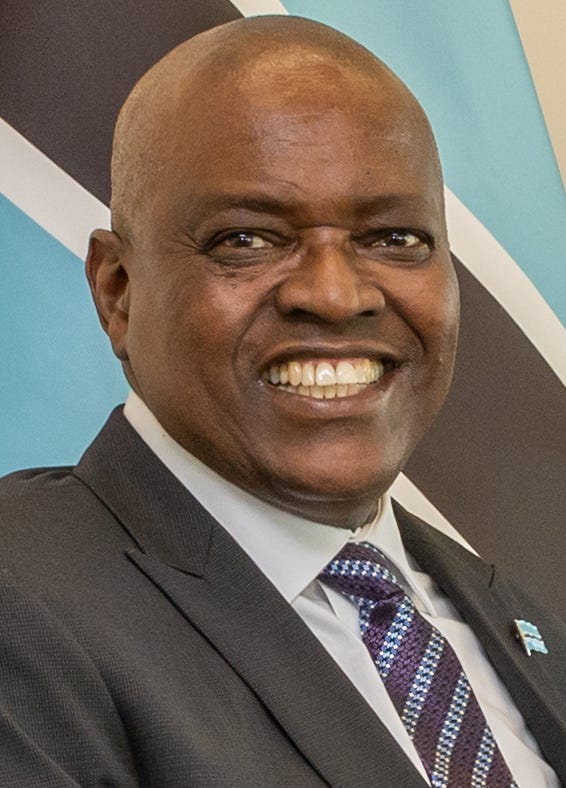Image of the Day
Good Morning from Bel-Air, Guinea

Spotlight Stories
Somalia and the World’s Most Dangerous Delivery Service

Picture your worst commute ever. Now imagine doing it with illegal alcohol hidden under vegetables, through terrorist checkpoints, across landmine-scattered roads, while armed militias debate whether to shoot you or just take your cargo. Welcome to the life of Somalia's alcohol smugglers.
While some of us stress about our Uber ratings, smugglers like Guled Diriye are playing a much higher-stakes game. After getting priced out of the minibus-taxi business by rickshaws, he found himself in Somalia's most dangerous delivery service: alcohol smuggling from Ethiopia.
"In this country, everyone is struggling and looking for a way out," says Diriye, whose exhausted eyes and dust-covered sandals tell the story of countless desert crossings.
The business model is simple enough: Load up trucks with legitimate cargo like vegetables, cleverly conceal 50-70 boxes of alcohol underneath, and drive through some of the world's most dangerous territory to reach Mogadishu. The profit margins are attractive – if you survive.
This isn't your typical side hustle, and the smugglers have developed a fascinating risk management strategy:
Travel in groups of three (each from different clans for maximum negotiating power)
Everyone knows how to drive (in case someone gets shot)
Build relationships with checkpoint guards (sometimes with bribes, sometimes with bottles)
Somalia's alcohol prohibition means big opportunities for those willing to risk it all. But the competition isn't other smugglers – it's armed militias, bandits, and al-Shabaab, who have a particularly strict return policy involving burning your vehicle and holding you for ransom.
The BBC has a fascinating in-depth on these smugglers, and you can read it here.
Botswana's Election
Botswana, the land of diamonds and stable democracy, is gearing up for a national election. The ruling Botswana Democratic Party (BDP) has been running the show for a whole 58 years, but this time around, things are getting a bit rocky.
President Mokgweetsi Masisi, the head honcho of the BDP, is gunning for a second term, but he's got some serious competition. Three challengers have thrown their hats into the ring, and they're not messing around.
But the real star of this election? Diamonds. Or rather, the lack thereof. Botswana is the world's second-biggest diamond producer, and those sparkly gems have been keeping the country afloat for decades. But now, with a downturn in demand, the diamond revenue has taken a nosedive, and the government's pockets are feeling the pinch.
Unemployment is sky-high, especially among the youth, and government employees are getting their salaries late.
The opposition is having a field day with this, calling out the BDP for not diversifying the economy and leaving the country in a lurch. Even former President Ian Khama, who used to be BDP's golden boy, has turned against them and is campaigning for a rival party.
So, what's the BDP's game plan? They're promising to focus on diversifying the economy, processing mineral resources for new revenue streams, and boosting agriculture and tourism.
But the challenges don't stop there. Botswana is a huge country with a tiny population, and the Kalahari Desert is slowly but surely taking over. Drought and desertification are threatening the livelihoods of many Botswanans, and the next government will have to find a way to tackle these issues head-on.
Africa's Space Race: Satellites, Sovereignty, and Geopolitical Shenanigans

Africa is heading to space. Well, not the whole continent, but a growing number of African nations are launching their own satellites.
Senegal just sent its first satellite, the GaindeSAT-1A, into orbit. It hitched a ride with 115 other satellites, mostly from Western nations. Djibouti and Zimbabwe also joined the satellite club recently, bringing the total number of African countries with space hardware to 17. And there are dozens more African satellites in the pipeline.
Thing is, however, Africa doesn't have its own space launch facilities, so nations are turning to powerful friends abroad to help them reach the stars.
While some might see space as a playground for the elite, African nations are finding practical applications for satellite technology. From monitoring crops and detecting weather threats to improving telecommunications in remote areas, space tech can help tackle some of the continent's most pressing challenges.
Foreign interest in African space programmes has grown over the years, but it's not all altruism and scientific curiosity driving it. Europe, China, and the US have all gotten involved, using space cooperation as a "critical diplomatic tool" to assert their influence on the continent.
Some worry about the implications of this space-based geopolitical chess game, but others see opportunities by playing these different powers against each other to get the best deals.
Plus, equatorial launches from African space ports could be more fuel-efficient, making them a hot commodity in the coming decades. As a result, the Luigi Broglio Space Center off the coast of Kenya, last used in the 1980s, could be due for a comeback.
Despite the challenges and geopolitical complexities, the future of Africa's space industry looks promising. With nearly 80 satellites currently in development, we can expect to see more and more African nations reaching for the stars.
Food for Thought
“When two people fight in the water, they both get wet.”
— Malawi Proverb



